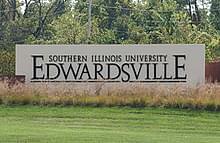Bachelor of Science [B.S] (Metallurgical Engineering)
Field of Study:
$26,572 /Yr
The curriculum reflects these three areas to produce an engineer ready to work in industry, research, management and/or graduate school. The Nevada mining industry need quality engineers today and will pay excellent salaries and benefits.
- Mineral Processing: The engineer takes advantage of differences in physical and/or chemical properties to develop, manage, and control processes for liberating, separating, concentrating valuable minerals or metals from ores.
- Extractive Metallurgy: The engineer produces and purifies metals from concentrates and ores, plus metal recycling using hydrometallurgy (aqueous processing), electrometallurgy (electrochemical processing), and pyrometallurgy (high-temperature processing).
- Physical Metallurgy: The engineer processes metals into products by various means, such as casting, forging, extrusion, and powder techniques. He/she controls engineering properties of metals, such as strength, hardness, and fatigue, by alloying, annealing and heat treatment.
Metallurgical engineers involved in extractive metallurgy work in laboratories, ore treatment plants, refineries, and steel mills. Though steel, iron and precious metals are common; the metallurgical engineers can also attain specializations in aluminum, copper, metal fabrication, exotic alloys and applications, etc
The B.S. Metallurgical Engineering degree trains students to apply technology in converting natural mineral resources into useful products for society. In order to learn to process and extract ores to concentrate, then refine their valuable components, students take courses in advanced chemistry; metallurgical process, modeling and control; pyrometallurgy, hydrometallurgy.
Students receive broad training to maximize production and energy efficiency and enhance the properties of metals in an environmentally acceptable manner. The department maintains a close liaison with the minerals industry. Field trips for students are arranged during the academic year, and they are required to work in the minerals industry during at least one summer vacation. The Fundamentals of Engineering examination, administered by a State Board of Engineering Registration, must be taken by all mining and metallurgical engineering students during the senior year of study.
Important Dates
| Event | Application Date |
|---|---|
| Application Deadline For Spring 2025 Intake | |
| Final Application Deadline For Fall 2024 Intake | |
| Early Action Application Deadline For Non-Binding 2025 Intake | |
Tuition Fees
| Year | 1st Year Fees |
|---|---|
| Tuition Fees | $26572 |
Course Guides
BTech in USA: Deadlines, Fees, Scholarships & Jobs
STEM Courses in USA: Universities, Admission Requirements, Placements & Advantages
Scholarship Grants & Financial Aids
| Name | Scholarship Per Student | Level of Study | Type | |
|---|---|---|---|---|
| WHO Internship | Scholarship per studentVariable Amount | Level Of StudyBachelor | TypeCompany-Sponsored | |
| BrokerFish International Student Scholarship | Scholarship per student$ 1,000/Yr$1,000 | Level Of StudyBachelor | TypeMerit-Based | |
| TEC Scholarship | Scholarship per student$ 1,000/Yr$1,000 | Level Of StudyBachelor | TypeMerit-Based | |
| Next Genius Scholarship | Scholarship per studentVariable Amount | Level Of StudyBachelor | TypeMerit-Based | |
| Arkansas Scholarships | Scholarship per studentVariable Amount | Level Of StudyBachelor | TypeCollege-Specific | |
| Ritchie-Jennings Memorial Scholarship Program | Scholarship per student$ 10,000/Yr$10,000 | Level Of StudyBachelor | TypeMerit-Based |
Similar Colleges


Southern Illinois University


University at Albany


Northern State University


Abilene Christian University
.jpeg?h=143&mode=stretch)

Ohio Northern University


University of South Carolina


University of Akron


State University of New York Polytechnic Institute






1546425900.png?h=48&w=101&mode=stretch)


















Comments